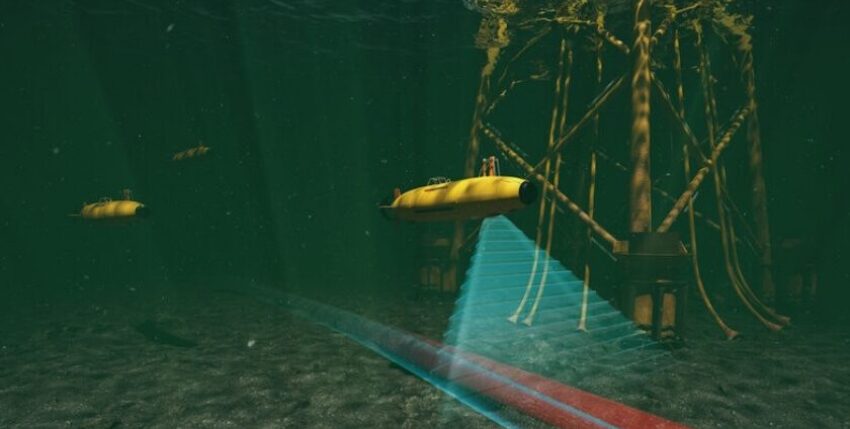The central data management platform plays a key role in the monitoring of critical maritime infrastructure. The Federal Ministry for Digital and Transport Affairs (BMDV) has now awarded Kiel-based north.io GmbH the contract to further develop its Automated Recognition of Ghost ships and Underwater Surveillance (Argus). 2.7 million euros have been made available for this purpose. north.io is carrying out the project in collaboration with the GEOMAR Helmholtz Centre for Ocean Research Kiel and Subsea Europe Services GmbH.
In efforts to protect critical underwater infrastructure (KRITIS), there is a lack of detection of ship movements in the vicinity of critical infrastructure. Ships that deliberately conceal their position data, so-called ghost ships, are of particular interest. In addition, a systematic inspection of critical underwater infrastructure based on real-time data needs to be established. Currently, measurement data from various sources is only collected and processed manually.
At the end of the development process, a centralised data management platform is to be created that brings together the various tools using cloud technology, mass geoinformatics data and artificial intelligence. Argus enables the systematic collection and correlation of satellite data with transmitted ship position data and the geodata of critical infrastructure, while monitoring modules for underwater infrastructure and forecasts for underwater sound velocities are also integrated. This information tool also works independently of restrictive hardware solutions and offers scalable and flexible utilisation. Overall, this enables automated monitoring of critical underwater infrastructure in a coherent situational picture. "This innovation has the potential to fundamentally transform the practices of organisations and authorities in dealing with geodata and establish new standards in the industry." Which "significantly improves Germany's decision-making capability and creates a robust framework for the protection of critical infrastructures," says Dr Sebastian Bruns from the Institute for Security Policy at Kiel University (ISPK).
The two-year project has a total volume of 3.5 million euros, 77 per cent of which is financed from the federal budget (source: BMDV). The difference will be covered by the project partners themselves.
At the DataRun2023 hackathon organised by the Federal Maritime and Hydrographic Agency (BSH) in June 2023, a five-person team from north.io drew attention to the application they developed to better protect critical maritime infrastructure by using remote sensing data. The Kiel team won the prize in the "Most Unusual Approach" category.







